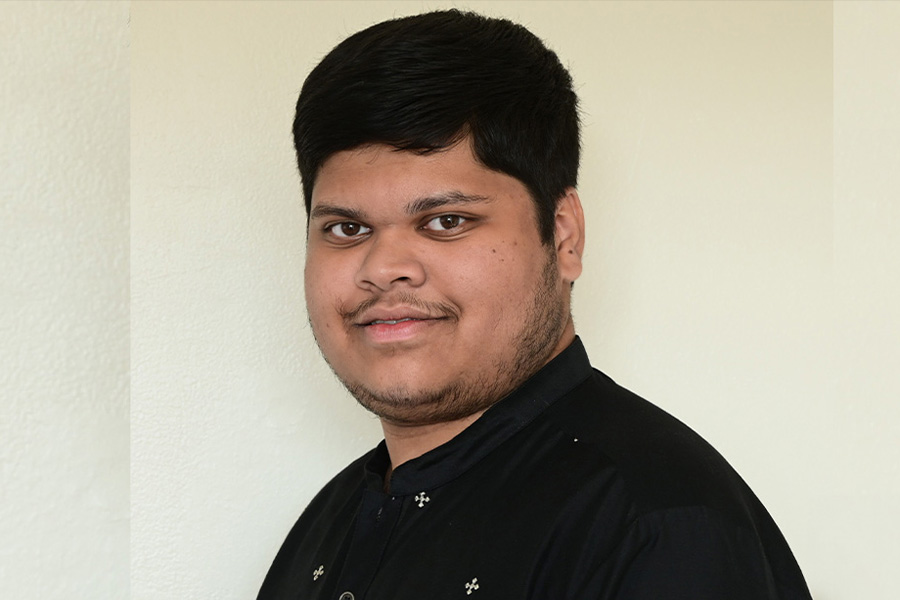Purdue ECE student Ayan Biswas co-develops smartphone tool to measure soil health using AI
Purdue ECE student Ayan Biswas co-develops smartphone tool to measure soil health using AI

A Purdue University Ph.D. student in the Elmore Family School of Electrical and Computer Engineering has helped develop a low-cost, field-ready tool that uses a smartphone and artificial intelligence to predict soil organic matter, a critical indicator of soil health and sustainability.
Ayan Biswas, a doctoral student in Purdue ECE, collaborated as a part of MITACS Globalink Research Internship program with researchers from the University of Guelph in Ontario, Canada, on the project, which was led by Prof. Asim Biswas, the OAC Chair Professor in Soils and Precision Agriculture at the University of Guelph.
The interdisciplinary team combined expertise in electrical and computer engineering with agricultural science to create an innovative approach to measuring soil quality, offering a scalable solution to a problem that has long challenged farmers, agronomists and researchers.
Traditional laboratory testing for soil organic matter, or SOM, can be expensive, time-consuming, and inaccessible to many in the agricultural sector. The new method developed by the team uses smartphone images of soil samples and a novel deep learning framework to provide near-instant SOM predictions in the field.
The system moves beyond standard regression-based models. Instead, it employs a similarity-based metric learning approach, enhancing prediction accuracy. It also features adaptive image quality assessment and super-resolution processing to improve performance in diverse real-world conditions.
Tested on 500 soil samples from southern Ontario, the model achieved a validation root mean square error (RMSE) of just 0.17 — significantly better than the 0.51 RMSE produced by traditional models. The tool maintained consistent accuracy across various soil textures and environmental conditions, making it practical for wide-scale use.
Societal Benefits
“This research has the potential to transform how we monitor and manage soil health,” Ayan Biswas said. “By making SOM testing faster, cheaper and easier, we’re empowering farmers and land managers to make informed decisions that support sustainable agriculture.”
The project reflects a growing trend in digital agriculture, where engineering innovations are increasingly applied to environmental and agricultural challenges.
The paper associated with this research, “Deep metric learning for soil organic matter prediction: A novel similarity-based approach using smartphone-captured images,” was recently published in Computers and Electronics in Agriculture.
